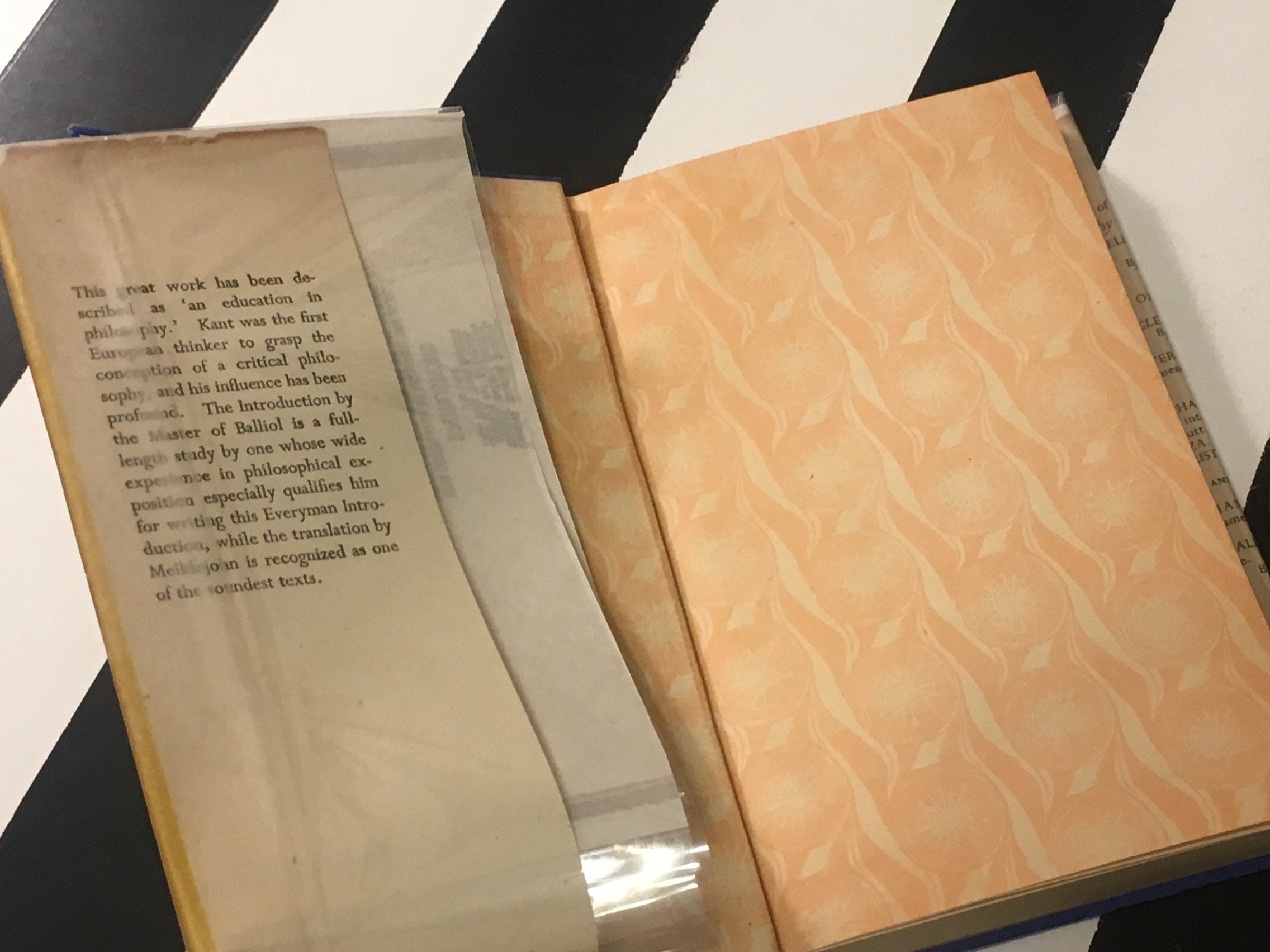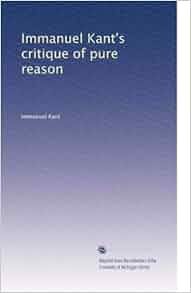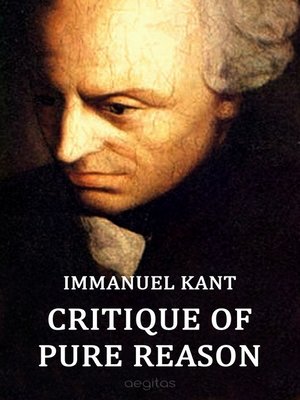
The question of whether it is finite or infinite turns out to be related to its curvature, which is something we can measure. Contrary to Kant's claims, the whole of space-time is now also a thing.

The fact that time and space are things radically changes the situation. Kant argues, roughly, that it is not meaningful to inquire about whether the universe is finite or infinite in space and time. The most obvious consequence is that the greater part of the Antinomy of Pure Reason - a good hundred pages of Kant's book - is rendered invalid.

This interplay between space-time and matter is what we experience as gravity.Įinstein has done far more than correct a detail. Matter acts on space-time to change its shape, and space-time acts on matter to cause it to move. Space-time is, indeed, a thing that we can roughly conceptualize as a kind of invisible fluid in which we have our physical being. Kant repeatedly tells us that time and space are not things but Einstein's insight is that this is wrong. Einstein, with considerable justification, felt that he had refuted Kant, and was surprised to find that philosophers were reluctant to accept his claim. Turgid, dogmatic, overrated and well past its sell-by.Īs Einstein exasperatedly said: if Kant had only been able to stop pontificating about the nature of time and space, he might actually have discovered something interesting about them. Kant repeatedly tells us that time and space are not things but Eins Thesis Proof As Einstein exasperatedly said: if Kant had only been able to stop pontificating about the nature of time and space, he might actually have discovered something interesting about them. Thesis Turgid, dogmatic, overrated and well past its sell-by. Kant's transcendental idealism indicates a third way that goes far beyond these alternatives.more The Critique brings together the two opposing schools of philosophy: rationalism, which grounds all our knowledge in reason, and empiricism, which traces all our knowledge to experience. Reason, Kant argues, is the seat of certain concepts that precede experience and make it possible, but we are not therefore entitled to draw conclusions about the natural world from these concepts. It presents a profound and challenging investigation into the nature of human reason, its knowledge and its illusions. Kant's Critique of Pure Reason (1781) is the central text of modern philosophy. Reason, 'The purpose of this critique of pure speculative reason consists in the attempt to change the old procedure of metaphysics and to bring about a complete revolution'

'The purpose of this critique of pure speculative reason consists in the attempt to change the old procedure of metaphysics and to bring about a complete revolution' Kant's Critique of Pure Reason (1781) is the central text of modern philosophy.


 0 kommentar(er)
0 kommentar(er)
